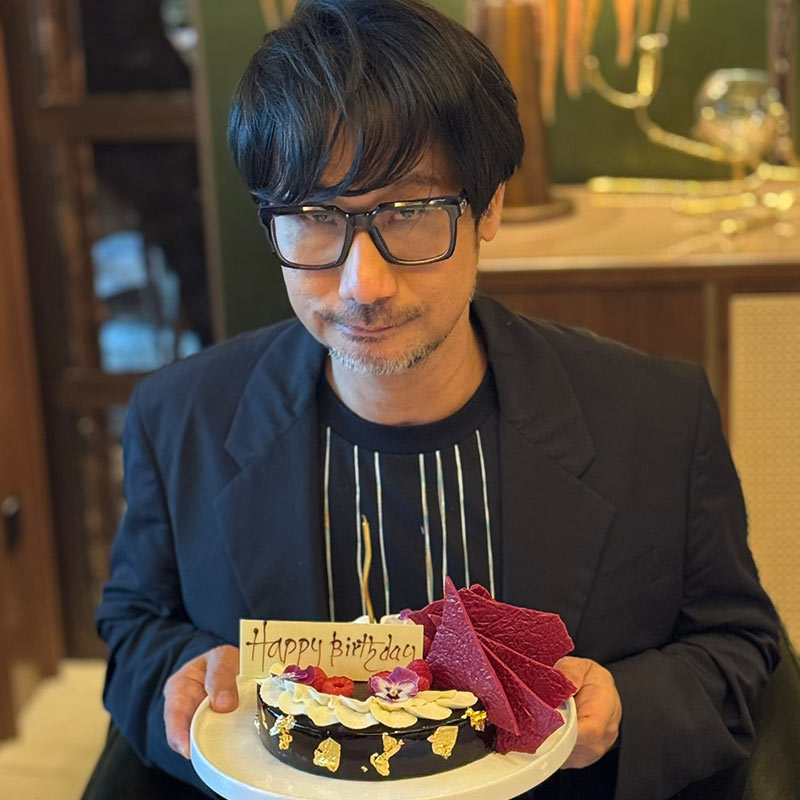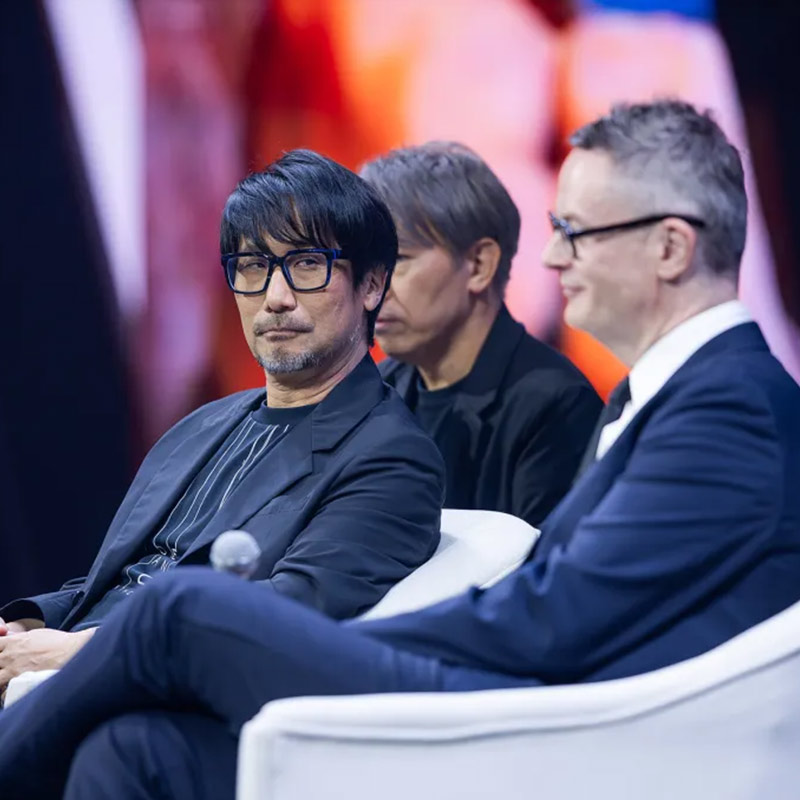The second annual Esports World Cup wrapped up in Riyadh, Saudi Arabia, with the grand finals of Crossfire, Street Fighter 6, and Counter-Strike 2 drawing huge crowds to Boulevard City’s SEF Arena.
But not far away, at the New Global Sport Conference, saw a gathering of industry leaders, athletes, and innovators discussing the future of gaming. Attendees and speakers include a diverse group of C-suite figures, renowned athletes and players, and more, as well as multiple members of Saudi royal family.
Before HRH Prince Fahad bin Mansour bin Nasser Al Saud’s closing remarks, was a conversation between two artists: Japanese game developer Hideo Kojima and Danish filmmaker Nicolas Winding Refn.
Over 40 minutes, the two explored their long friendship, the purpose of art, and the ways game development and filmmaking increasingly intersect, offering attendees a rare glimpse into the minds of two pioneering creators shaping the next frontier of interactive storytelling.
During the conversation titled Blurring the Lines Between Games and Cinema, the two discussed the many aspects of the business of video games. And this is when Hideo shared his thoughts about AI, the emerging technology that has taken over many industries, including gaming.

Kicking off the panel, Kojima reflects on the history of gaming’s advancements, before looking toward its potential future:
"The biggest, first change was [that] games became 3D. The second is we [became] connected by [the] internet, and you could play [online]. The third is the trend right now that AI is now coming into game creation, and we have not just ChatGPT, but they learn from how the players control. And I think that you’ll take advantage of that."
DEATH STRANDING WORLD STRAND TOUR 2 in Riyadh
Fireside Chat at #NGSC2025
At the closing session of the international conference NGSC2025—which explores the future of esports, entertainment, and the technology industries—Hideo Kojima and Nicolas Winding Refn took to the stage.… pic.twitter.com/VK79o7fjUO— KOJIMA PRODUCTIONS (Eng) (@KojiPro2015_EN) August 24, 2025
Both Kojima and Refn have decades-long careers that span multiple tectonic shifts in their respective industries, with each having ridden the waves of technological advancements and constantly changing industry trends.
As for Kojima, widely recognized as one of the most influential figures in video game history, is perhaps most well known for creating the Metal Gear series during his time at Konami.
He began the franchise in 1987 with the original Metal Gear for the MSX2, pioneering a genre that combined stealth, strategy, and cinematic storytelling in a way few games had attempted at the time.
Rather than forcing players into direct combat, Kojima emphasized avoiding detection, thinking creatively, and navigating complex environments, which introduced stealth as a central gameplay mechanic and influenced countless titles in the decades that followed.
Beyond gameplay innovation, Kojima revolutionized storytelling in video games. Also with the Metal Gear series, Kojima spearheaded a game with intricate plots, memorable characters, and cinematic cutscenes that rival Hollywood productions.
Kojima often explores themes of war, politics, identity, and the human cost of technology, weaving them into a narrative that challenges players to think as deeply as they act. His ability to merge gameplay with narrative he calls “interactive cinema,” setting a new standard for how games could tell stories.
His more recent notable work, is the Death Stranding series.
He made headlines after having a handful of celebrities as cast, and routinely posting on social media with actors like Norman Reedus and Léa Seydoux, as well as acclaimed filmmakers like Guillermo del Toro and George Miller. This cemented his name as those among the digital age socialite.

Kojima doesn't refrain himself from using emerging technologies. his mantra, "gaming is always about technology" captures his view that the evolution of video games has always been tightly coupled with technological innovation.
After he saw the opportunity of using AI for Death Stranding 2: On the Beach, he said that he employed a "machine learning rig" to import likenesses of celebrities like Refn and other celebrities' likenesses into the game. By adopting emerging technologies, Kojima wishes to continue pushing the boundaries of interactive entertainment, blending technology, storytelling, and art to shape the future of gaming.
He has expressed that AI-made results were "okay," but emphasized the enduring value of traditional, analog methods in game creation.
But despite having his own take on AI, Kojima emphasizes that he himself rarely plays games these days, thinking that modern games are too long to finish.
"I don’t play games so much. I watch movies, read books, meet people and go to museums, and I’m not copying anything from a game. And there are lot of game creators just watching other games," he said, suggesting younger developers to also look for inspiration in other media and in life itself. These approaches ensure that technology serves creativity rather than limiting it.
"I think the young people are playing games a lot, and that’s good. But on top of that, I want people to feel art or see art and then digest it themselves and create new games."
